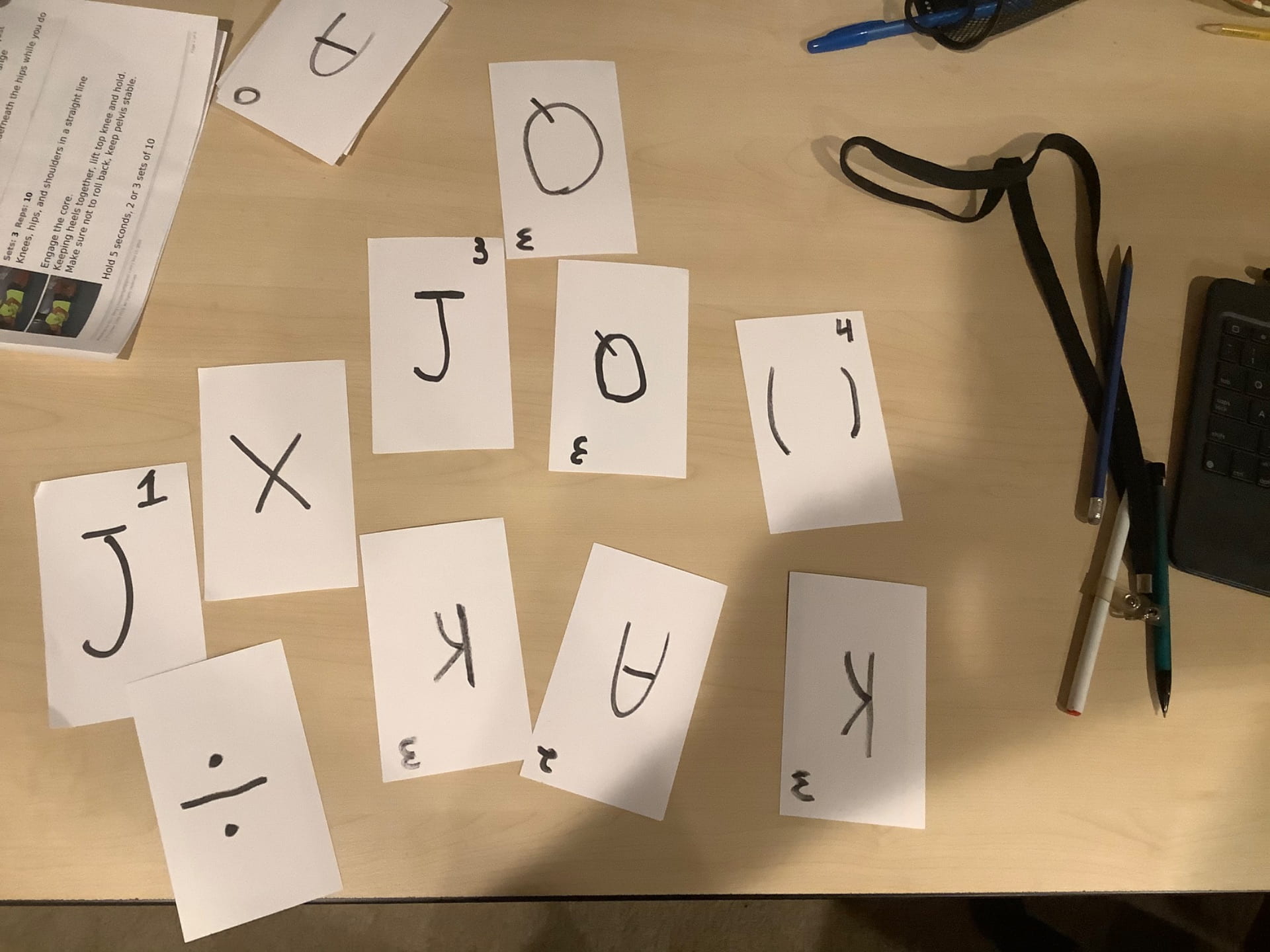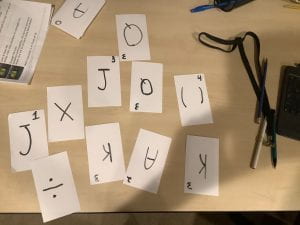How does Math make games more complex, interesting, and re-playable?
This project helped me in many different ways. While learning about exponents I also learned how to differentiate the card game “UNO”
Now, you may be wondering why would someone want to add math to a fun card game? It makes it sooo boring! Well, this is false. Math can be added to card games and still be fun. And this was precisely my task.
We started off with a few stepping stones…
We started by learning about exponents in class. We watched videos on the basics of Exponents and their laws. We practiced with in class lesson notes and khan academy activities.
After this, it was officially announced that we were going to make a card game using exponent laws. At first, my partner (Kaden) and I were confused. He had no idea what we were being asked to do. We were confused with the details of the project. Were we only allowed to use cards? Dice? Board game?
While still confused, we started making several drafts for our project. Our first draft was that we were planning on using exponents and numbers to see which person could get to 1000 first. But we quickly realized this wasn’t going to work because it involved using a calculator and was very boring. We also said it was heavily based on luck and had no skill whatsoever. We also saw that the numbers were going to go WAY to high.
In our final project, we decided to make a game based on the game UNO.
We made it so the base wasn’t a number anymore. It would become a letter. This way the numbers couldn’t get out of hand and were easy to get. We also changed it so our exponent numbers didn’t go above 3. This was another way to not let the numbers get out of hand. We used the multiplication law, division law, Power law, and the zero law. This way, our game became easy to play, not to complex, and you were still learning exponent laws.
The main problem we ran into was not having enough “Exponent” cards. Players would have an overflowing amount of “base” cards and not enough “exponent” cards. We fixed this problem by adding DOUBLE the amount of “exponent” cards. This way the players were never having trouble playing their turn.
Overall, Kaden and I made an excellent card game. It was well rounded, fun, and easy to play. We were able to make “UNO” more complex, more interesting, and re-playable. All in all, Kaden and I were extremely satisfied with our game
became easy to play, not to complex, and you were still learning exponent laws.
The main problem we ran into was not having enough “Exponent” cards. Players would have an overflowing amount of “base” cards and not enough “exponent” cards. We fixed this problem by adding DOUBLE the amount of “exponent” cards. This way the players were never having trouble playing their turn.
Overall, Kaden and I made an excellent card game. It was well rounded, fun, and easy to play. We were able to make “UNO” more complex, more interesting, and re-playable. All in all, Kaden and I were extremely satisfied with our game results and marks


Leave a Reply